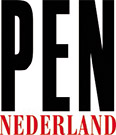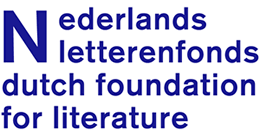Bernlef herdacht op PEN International

In memoriam Henk Bernlef- 14 January 1937-29 October 2012
The Foundation PEN Emergency Fund, set up in 1970, is a lifeline to writers and their families whose lives had been blighted by prison, threats, torture and censorship. That it has existed for more than four decades is entirely due to the small group of Dutch PEN members who have devoted themselves to raising money and making sure that it gets where it is most needed. From the late 1980s until 2003, the Fund was headed by the novelist and poet Henk Bernlef who died on 29 October 2012, aged 75, after a short illness. He remained engaged with the Fund to the end.
As is the way at the end of every year, I find myself writing up reports of the PEN Writers in Prison Committee’s achievements in the past 12 months, compiling statistics of writers arrested, writers freed, alerts issued, reports published, etc. This information is used by PEN members, its funders and supporters, as indications of how well we have met the challenge of helping writers at risk. Last year, one figure stands out. In 2012, the PEN Emergency Fund had made over 40 emergency grants to writers in all world regions, sometimes getting money to them within days. I know of few other aid organisations that have the flexibility and light touch bureaucracy that enables them to respond to urgent need as quickly as the Fund.
I first started working with the Fund soon after I arrived in PEN in 1990, when the first Yugoslav war broke out and I made my contact with Henk. Working alongside Slovene PEN, liberated earlier than the other Yugoslav states, he was channeling money to writers trapped by the fighting, finding writers who could enter the war zone, money hidden away, and, eventually handed over directly. At the same time, money was being sent to scores of Vietnamese writers who were unable to publish, again using undercover means. Over the years, our attention turned to Africa, the Americas, and then back to Russia and the new post-Soviet states which, after a short lull, too often returned to authoritarianism. Also, and increasingly, the Fund found itself responding to pleas for help from writers fleeing from extremists and criminals against whom the authorities appeared helpless or who refused to provide protection. Last year’s forty recipients have included Syrian writers in dire need under bombing, as well as in exile, to provide support for Cubans released after many years in jail and needing to re-establish themselves, to provide a laptop for a journalist now living abroad, and food and medicines for families whose breadwinners are in prison.
The Fund bears Henk’s imprint. In the late 1980s, Henk took over from its founder, the poet Bob den Doolaard. They shared a discomfort of top heavy bureaucracy and so they were – rightly or wrongly – critical of the London-based leadership of PEN at the time which was divided between those who believed that PEN should keep out of “politics” and be concerned only with the craft of writing, and those who felt that freedom of expression and promoting literature are inseparable, divisions which have since worn away. So, by setting up the Fund in Holland, they found practical, concrete and year round ways for helping writers at risk outside the PEN Congresses (then held twice a year). I had the pleasure of working alongside Henk from my arrival in 1990 until he in turn handed over to the writer Rudolf Geel 13 years later in 2003, who continued the cooperation with Jan Honout to run the Fund today.
Henk was individualistic, straight talking, warm, funny and, on occasion, cussed. He was skeptical of bureaucracy, and resisted my early attempts to try to put in place rules that I, having come from a large non-governmental organisation (NGO) with many regulations, thought would protect the Fund. Far more experienced than I was at the time, having worked for years getting aid to people who needed it urgently, under some of the most hostile circumstances, Henk could see that my ideas could leave dangerous paper trails and create red tape delays. Also as writers don’t fit the patterns imagined by the big NGOs and funding agencies, my plans could end up excluding those writers who needed help but who didn’t fit the mould. However, over time we came to understand each other better and we devised systems that, while remaining adaptable and speedy, put at rest the minds of administrators of the foundations who now contribute a significant part of the Fund’s income and which comply with today’s more exacting reporting standards. (It should be noted that Henk was also a remarkable fundraiser, cultivating his contacts in Dutch publishing and aid agencies.)
Technological advances have also changed the way the Fund works, with communications with recipients and money exchanges becoming easier, as has networking with other groups that help writers, sharing information and advice. The Fund still needs, in most cases, to work in anonymity. And sometimes money is still brought over physically, in notes placed into the hands of the recipients by visiting writers, in time honored style.
What is striking about Henk Bernlef, and indeed his predecessor, Bob den Doolaard, is that neither of them trumpeted their humanitarian work. They could well have made capital of the fact that they had helped hundreds of writers out of difficulties, often extreme. Among them people who may well have died had Henk not intervened through the Fund. Henk, who wrote under the name J. Bernlef (later just Bernlef), was a noted writer, publishing more than 40 literary works: novels, stories, poetry collections and essays, sometimes inspired by his love of jazz. He is described as one of the ‘greats of Dutch literature’. He was awarded numerous literary prizes, and was a noted translator from Swedish to Dutch, including the work of Tomas Tranströmer. Yet nowhere trawling through the internet can I find any mention of Henk’s achievements as a human rights defender. His diffidence may have been a result of the secrecy under which the Fund had to operate, particularly during the Cold War years. It may have been a sense that it is improper to make a deal of one’s work with others who are suffering. Maybe he was simply too busy writing and with the actual business of getting money to victims. I regret I didn’t have the chance to ask him what his motivations were but clearly, Henk was not only a distinguished writer himself, but also a great defender of other writers.
Sara Whyatt
Deputy Director
PEN International
Overgenomen van de PEN International website.





